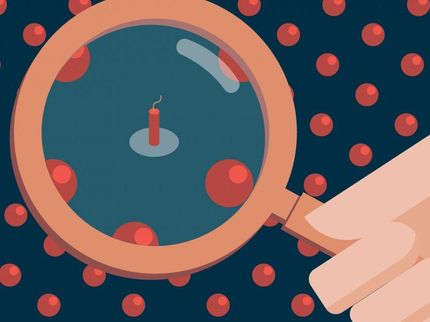Pioneering research boosts graphene revolution
Pioneering new research by the University of Exeter could pave the way for miniaturised optical circuits and increased internet speeds, by helping accelerate the 'graphene revolution'.
Physicists from the University of Exeter in collaboration with the ICFO Institute in Barcelona have used a ground-breaking new technique to trap light at the surface of the wonder material graphene using only pulses of laser light.
Crucially, the team of scientists have also been able to steer this trapped light across the surface of the graphene, without the need for any nanoscale devices. This dual breakthrough opens up a host of opportunities for advances in pivotal electronic products, such as sensors and miniaturised integrated circuits.
Dr Tom Constant, lead author on the paper and part of Exeter's Physics and Astronomy Department said: " This new research has the potential to give us invaluable insight into the wonder material and how it interacts with light. A more immediate commercial application could be a simple device that could easily scan a piece of graphene and tell you some key properties like conductivity, resistance and purity ."
Dr Constant and his colleagues used pulses of light to be able to trap the light on the surface of commercially-available graphene. When trapped, the light converts into a quasi-particle called a 'surface plasmon', a mixture of both light and the graphene's electrons.
Additionally, the team have demonstrated the first example of being able to steer the plasmons around the surface of the graphene, without the need to manufacture complicated nanoscale systems. The ability both to trap light at a surface, and direct it easily, opens up new opportunities for a number of electronic-based devices, as well as help to bridge the gap between the electronics and light.
Dr Constant said: "Computers than can use light as part of their infrastructure have the potential to show significant improvement. Any advance that reveals more about light's interaction with graphene-based electronics will surely benefit the computers or smartphones of the future."
Original publication
Other news from the department science

Get the chemical industry in your inbox
By submitting this form you agree that LUMITOS AG will send you the newsletter(s) selected above by email. Your data will not be passed on to third parties. Your data will be stored and processed in accordance with our data protection regulations. LUMITOS may contact you by email for the purpose of advertising or market and opinion surveys. You can revoke your consent at any time without giving reasons to LUMITOS AG, Ernst-Augustin-Str. 2, 12489 Berlin, Germany or by e-mail at revoke@lumitos.com with effect for the future. In addition, each email contains a link to unsubscribe from the corresponding newsletter.



























































